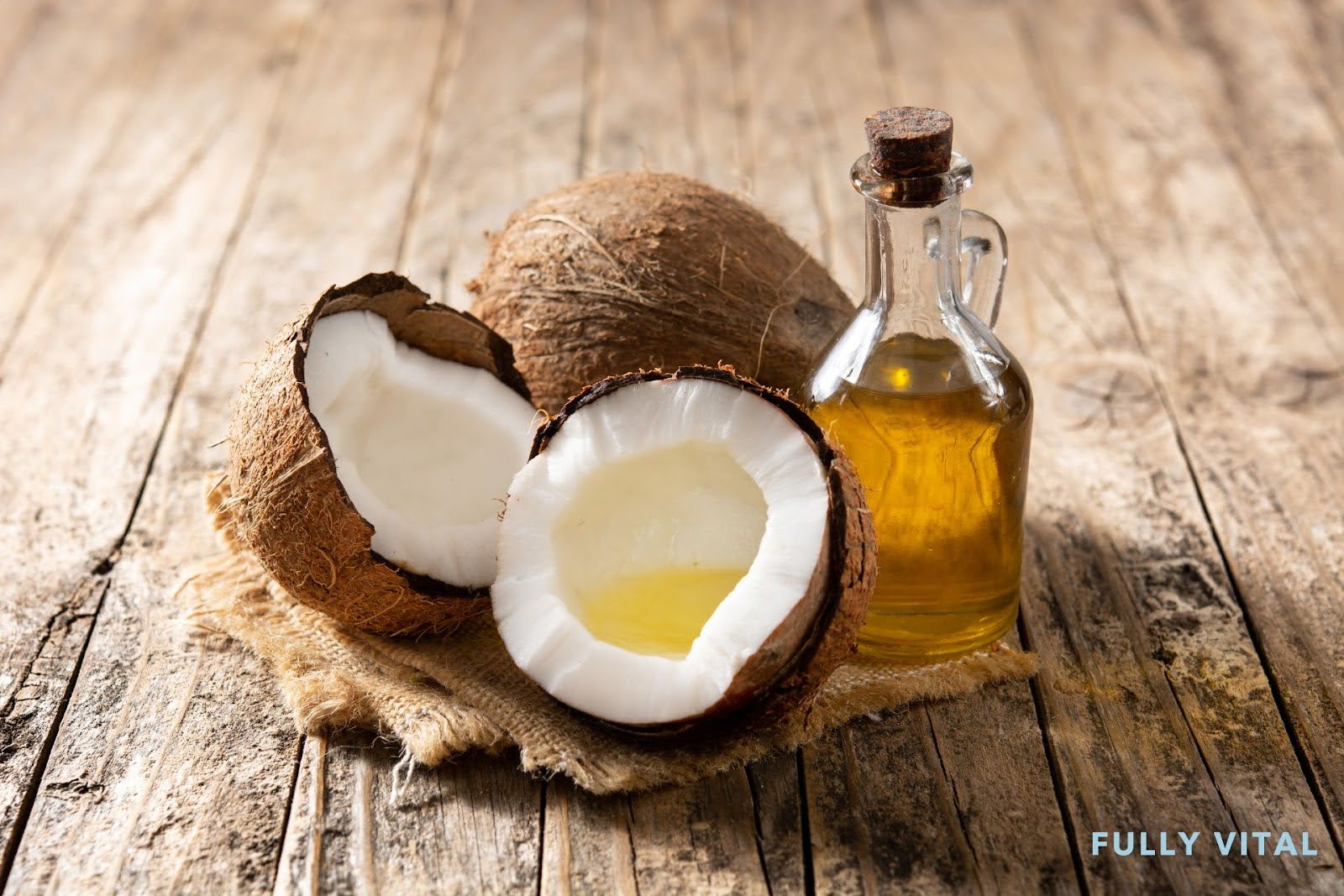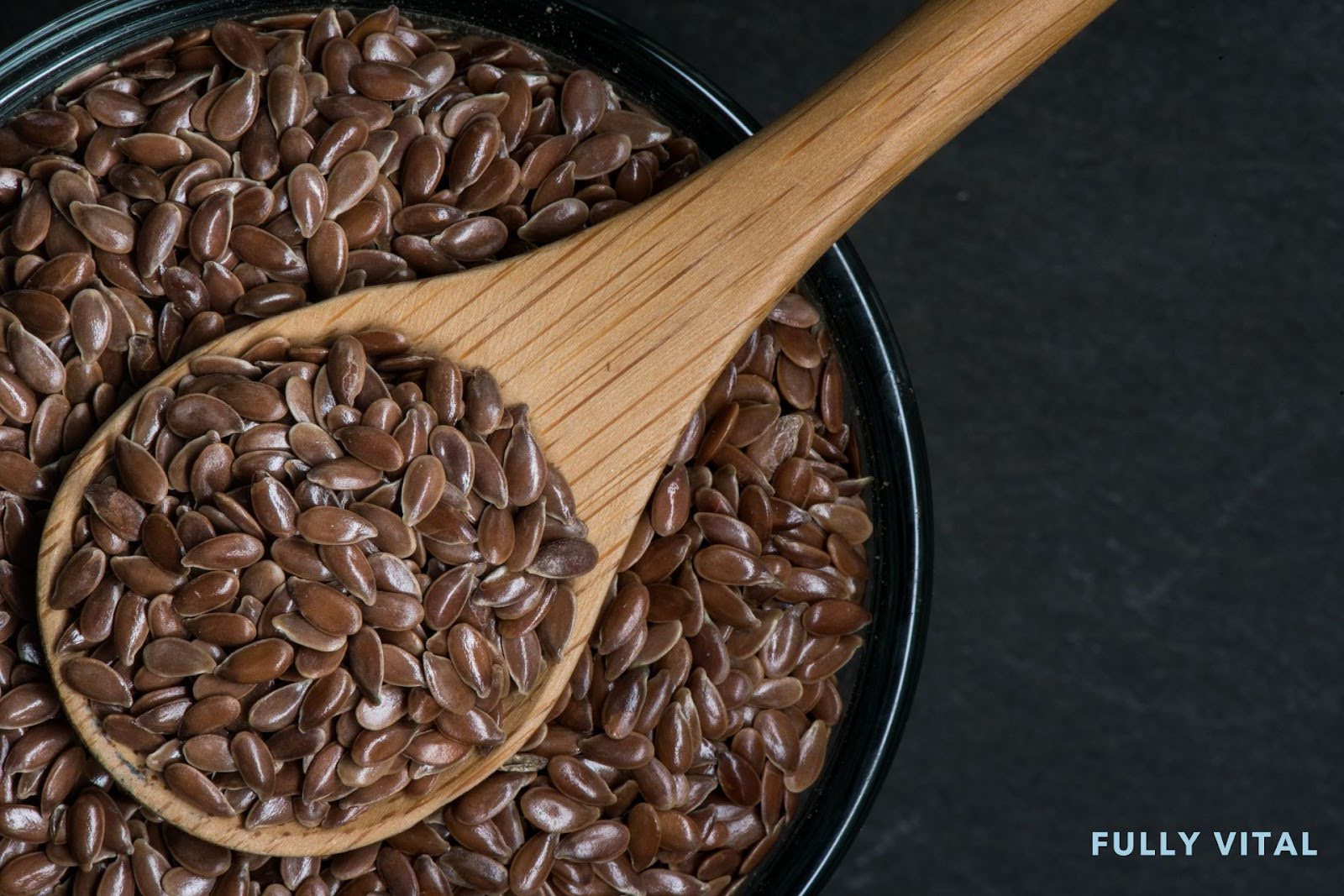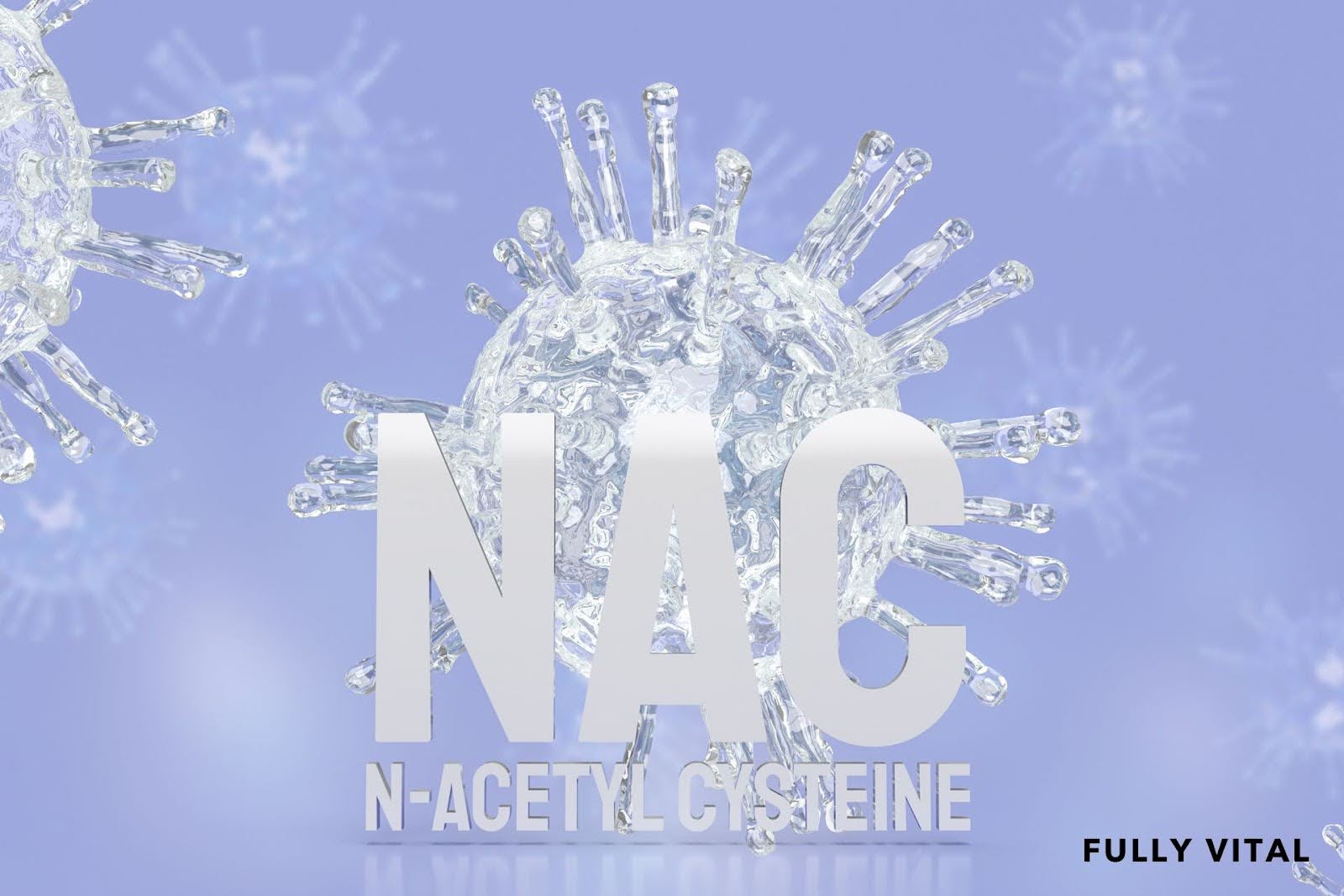
Monolaurin: The Coconut Derivative For Scalp Health
In the quest for optimal hair health, the focus often lands on the latest products or trends.
However, the secret to vibrant, strong hair might just lie in a natural compound derived from coconuts: monolaurin.
This powerful substance, known for its antimicrobial and anti-inflammatory properties, is emerging as a key player in maintaining scalp health.
Given the scalp is the foundation from which our hair grows, ensuring its health is crucial for the overall quality and appearance of our hair.
This article will delve into what monolaurin is, its benefits for the scalp, and how it fits into a holistic approach to hair care.
By understanding the role of monolaurin, we can unlock a new dimension in our journey towards healthier, more resilient hair.

I LOVE MY HAIR NOW
FullyVital hair serum and hair vitamins made tremendous improvements in my hair. I truly love my hair now.
Shop Hair ProductsWhat Is Monolaurin?
Monolaurin is a fatty acid derived from lauric acid, found abundantly in coconut oil and breast milk.
This compound is known for its potent antimicrobial properties, capable of fighting bacteria, viruses, and fungi.
Its ability to break down the lipid coatings of viruses makes it particularly effective in combating various pathogens.
Why Is Scalp Health Important?
Foundation Of Hair Health
The scalp is not just the skin on which hair grows; it's a living ecosystem that supports the hair follicles and, consequently, hair health.
A healthy scalp promotes strong hair growth, while an unhealthy scalp can lead to hair loss, thinning, and other hair-related issues.
The key to lush, vibrant hair lies in the health of the scalp.
Common Scalp Issues
Common scalp problems include dandruff, seborrheic dermatitis, psoriasis, and fungal infections.
These conditions can cause itching, flaking, and irritation, which not only discomfort but can also affect hair growth and appearance.
Addressing scalp health directly influences the condition and vitality of the hair, making it a critical aspect of hair care.

How Does Monolaurin Benefit Scalp Health?
Antimicrobial Properties
Monolaurin's ability to combat a wide range of pathogens is a cornerstone of its benefits for scalp health.
By effectively targeting bacteria, viruses, and fungi, monolaurin helps prevent and treat scalp infections that can lead to hair loss and other hair health issues.
Its antimicrobial action ensures a cleaner, healthier scalp environment conducive to optimal hair growth.
Anti-Inflammatory Benefits
Inflammation is a common response to scalp conditions and can contribute to discomfort and hair damage.
Monolaurin's anti-inflammatory properties help soothe the scalp, reducing redness, swelling, and irritation.
This calming effect supports a healthier scalp, which is essential for strong, healthy hair.
Balancing Scalp Flora
The scalp's microbiome, a delicate balance of microorganisms, plays a significant role in scalp and hair health.
Monolaurin helps maintain this balance by selectively targeting harmful pathogens without disrupting beneficial bacteria.
This selective action helps protect the scalp from overgrowth of harmful microorganisms, promoting a balanced and healthy scalp environment.
Is Monolaurin Safe For All Scalp Types?
Safety Profile
Monolaurin is generally recognized as safe for topical use on the scalp.
Its natural origin and compatibility with the skin's microbiome make it a gentle yet effective ingredient for individuals looking to improve their scalp health.
Given its mild nature, monolaurin is suitable for daily use, offering a non-irritating alternative to harsh chemical treatments.
Considerations For Sensitive Scalp
For those with sensitive scalp conditions or allergies, monolaurin presents a low risk of adverse reactions.
However, as with any topical product, it's advisable to perform a patch test before widespread application.
This precaution ensures that the product is well-tolerated and minimizes the risk of irritation or allergic response, making monolaurin a versatile option for various scalp types and conditions.
How To Use Monolaurin For Scalp Health
Application Methods
Monolaurin can be applied to the scalp in various forms, including serums, shampoos, and topical oils.
For best results, it's recommended to apply monolaurin directly to the scalp, allowing it to penetrate deeply and act on the underlying issues.
Gently massaging the scalp during application can also enhance absorption and stimulate blood circulation, further promoting scalp health and hair growth.
Recommended Dosage
The optimal frequency and quantity of monolaurin application depend on the product form and individual needs.
Generally, using monolaurin-infused products every other day or as directed on the product label is sufficient to reap its benefits without overburdening the scalp.
It's important to follow specific product instructions and adjust usage based on personal experience and scalp response.

Can Monolaurin Replace Traditional Hair Care Products?
Monolaurin serves as a complementary element in hair care, focusing on enhancing scalp health with its antimicrobial and anti-inflammatory properties.
While it is a valuable addition, it cannot fully replace traditional hair care products such as shampoos, conditioners, and treatments that address a broad spectrum of hair needs.
Monolaurin is best used in conjunction with these products to maintain a healthy scalp, which in turn supports healthier hair.
Research And Evidence Supporting Monolaurin’s Efficacy
Summary Of Studies
Recent studies highlight monolaurin's effectiveness in combating various scalp-related pathogens, including bacteria, viruses, and fungi.
Research demonstrates its potential to significantly reduce microbial presence on the scalp, thereby minimizing the risk of infections that can lead to hair loss and poor hair health.
Expert Opinions
Dermatologists and trichologists often recognize the benefits of monolaurin for scalp health, citing its antimicrobial and anti-inflammatory properties as key to maintaining a healthy scalp environment.
Experts suggest incorporating monolaurin into hair care routines for individuals experiencing scalp issues or those seeking to improve their overall scalp and hair health.
Discover The Key To Youthful, Lustrous LocksAt Fully Vital, our commitment is to transform your hair care experience with our expertly crafted hair growth solutions. Unlock the potential to not only halt but also reverse hair aging signs. Become one of the many who have changed how they care for their hair. Here's what makes our products unique:
Rediscover the thick, vibrant hair you were meant to have. With Fully Vital, unlock a level of hair vitality that mirrors your inner spirit and zest. Revitalize Your Hair Today! No need to wait for another hair to thin or endure another day of dull locks. With Fully Vital, tap into the fountain of youth for your hair and enter a realm where aging hair can be a thing of the past. Give your hair the strength and support it needs to flourish. Experience the Fully Vital difference – because your hair deserves it. |
Final Thoughts On Monolaurin
Monolaurin, a natural compound derived from coconut, stands out as a powerful ally in the quest for scalp and hair health.
Its antimicrobial, anti-inflammatory, and scalp flora balancing properties offer a multifaceted approach to addressing common scalp issues, promoting a healthier environment for hair growth.
While monolaurin can significantly enhance scalp health, it's important to remember it as part of a broader hair care strategy rather than a standalone solution.
Incorporating monolaurin into your routine, alongside traditional hair care products, can provide a comprehensive approach to achieving and maintaining healthy, vibrant hair.
As we continue to uncover the benefits of natural ingredients like monolaurin, it becomes clear that the key to optimal hair health lies in balancing scientific innovation with nature's bounty.
Experience the transformative power of natural ingredients with Fully Vital's Enhance Hair Serum (3-Pack), designed to synergize with your journey towards stronger, more vibrant hair.
Discover the difference that science-backed, nourishing care can make for your locks.
Read Also:
- Tender Spot On Scalp: Causes, Treatments, And Prevention Strategies
- Revive Your Hair: The Benefits Of Almond Oil For Restoration And Growth
- The Science Behind Scalp Detox: Enhance Your Hair's Vitality
Frequently Asked Questions About Monolaurin
Can monolaurin cause any side effects when used on the scalp?
Monolaurin is generally well-tolerated and side effects are rare, especially when used as directed.
Individuals with very sensitive skin should conduct a patch test before regular use.
How quickly can I expect to see results from using monolaurin on my scalp?
Results can vary based on individual conditions and the severity of scalp issues.
Some may notice improvements within a few weeks, while others may need longer.
Can monolaurin be used on colored or chemically treated hair?
Yes, monolaurin is safe for use on colored or chemically treated hair as it is gentle and does not strip hair color or treatments.
Is monolaurin suitable for all hair types?
Monolaurin is versatile and suitable for all hair types, from dry to oily, and can be beneficial for various scalp conditions.
Can I use monolaurin if I have no scalp issues?
Absolutely.
Monolaurin can be used as a preventive measure to maintain scalp health and prevent future issues.
Does monolaurin help with hair growth?
While monolaurin primarily targets scalp health, a healthy scalp is fundamental to healthy hair growth.
It does not directly stimulate hair growth but creates an optimal environment for hair to grow.
How does monolaurin compare to other scalp treatments like tea tree oil?
Monolaurin and tea tree oil both have antimicrobial properties, but monolaurin's gentle nature makes it suitable for those who may find tea tree oil too harsh or drying.
Can children use monolaurin for scalp issues?
Yes, due to its gentle nature, monolaurin can be used for children with scalp issues, but it's always best to consult with a pediatrician first.
Is monolaurin effective against dandruff?
Yes, monolaurin's antimicrobial action can help control the yeast-like fungus associated with dandruff, thereby reducing flakiness and irritation.
How often should I use monolaurin for the best results?
Usage recommendations can vary based on the product form.
Generally, using monolaurin-infused products every other day or as indicated on the product packaging is effective.
Sources:
- Barker, L. A., Bakkum, B. W., & Chapman, C. (2019). The Clinical Use of Monolaurin as a Dietary Supplement: A Review of the Literature. Journal of Chiropractic Medicine, 18(4), 305–310. https://doi.org/10.1016/j.jcm.2019.02.004
- T. Kristmundsdóttir, & Skúli Skúlason. (2010). Lipids as Active Ingredients in Pharmaceuticals, Cosmetics and Health Foods. 151–177. https://doi.org/10.1002/9780470976623.ch7
- Lieberman, S., Enig, M. G., & Preuss, H. G. (2006). A Review of Monolaurin and Lauric Acid: Natural Virucidal and Bactericidal Agents. Alternative and Complementary Therapies, 12(6), 310–314. https://doi.org/10.1089/act.2006.12.310








